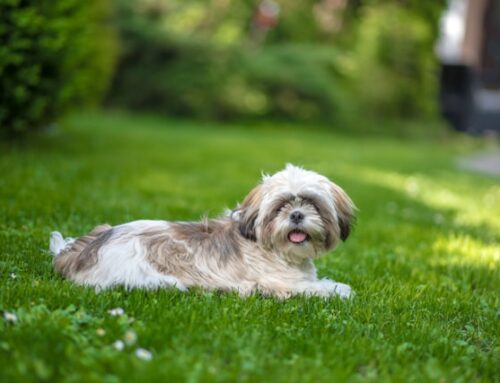Overview
- Introduction: Are Yorkies Hypoallergenic
- Understanding Hypoallergenic Dogs
- Yorkies and Allergies
- The Science Behind Hypoallergenic Breeds
- Factors Influencing Hypoallergenic Claims
- Grooming Practices for Hypoallergenic Effects
- Lifestyle Adjustments for Allergy Sufferers
- Addressing Common Myths
- Choosing the Right Yorkie for Your Needs
- Yorkie Care Tips for Allergy-Prone Owners
- Potential Allergy Triggers Beyond Yorkies
- Common Health Issues in Yorkies
- Conclusion: Are Yorkies Hypoallergenic
- Frequently Asked Questions: Are Yorkies Hypoallergenic
Introduction: Are Yorkies Hypoallergenic

The question of whether Yorkies, or Yorkshire Terriers, are hypoallergenic is a common inquiry among potential dog owners, particularly those prone to pet allergies. Understanding the unique characteristics of Yorkies, including their coat composition and shedding tendencies, is essential in determining their suitability for individuals with sensitivities.
This exploration delves into the hypoallergenic qualities of Yorkies, dispelling myths, and providing insights into factors that may influence their impact on allergy sufferers. By exploring these factors, individuals can make informed decisions about whether the Yorkie, or another same breed, is suitable for their needs as an allergy sufferer. Are Yorkies hypoallergenic? Let’s find out.
Brief Overview of Yorkies
Explore the enchanting world of Yorkshire Terriers, fondly referred to as Yorkies, renowned for their petite frames, spirited personalities, and luxurious fur. Delve into the allure of these beloved canine companions, fielding common inquiries like “are Yorkies hypoallergenic?” while delving into the intricacies of dog allergies and pet allergies.
Within this delightful journey, uncover insights into the sought-after realm of Teacup Yorkies, comparisons with other breeds, and considerations regarding the potential for pets to develop allergies and experience allergic reaction.
The Allure of Hypoallergenic Pets
Venturing into the realm of hypoallergenic pets, let’s embark on a journey to understand why many individuals, particularly those prone to allergies, gravitate towards breeds such as Yorkies for companionship. Uncover the irresistible appeal of Yorkies as a hypoallergenic dog breed, and delve into the array of possibilities offered by various breeds for individuals prone to an allergic reaction.

Understanding Hypoallergenic Dogs
Definition and Criteria
Yorkshire Terriers, commonly known as Yorkies, are often regarded as hypoallergenic dogs due to their minimal shedding and hair-like coats. Understanding hypoallergenic dogs entails recognizing breeds like Yorkies that are less likely to trigger allergic reactions in sensitive individuals.
While no dog breed can guarantee an absence of allergens, Yorkies are favored for their reduced propensity to produce allergens such as dander and hair. Their specific coat characteristics, characterized by fine, silky hair rather than traditional fur, contribute to this decreased allergen production, making them a popular choice for those prone to allergic reactions.
Common Misconceptions
Despite the term “hypoallergenic,” it’s important to dispel common misconceptions surrounding dogs and allergies. While hypoallergenic breeds may produce fewer allergens, no dog is entirely allergen-free. Factors like grooming practices, living conditions, and individual sensitivities also play a significant role. This exploration aims to debunk myths, emphasizing that careful consideration and awareness of various factors are crucial when selecting a dog for individuals prone to allergies.

Yorkies and Allergies
Yorkies’ Coat Composition
Yorkies, or Yorkshire Terriers, stand out among small dog breeds not only for their charming appearance but also for their unique coat composition. Unlike traditional dog fur, a Yorkie’s coat resembles human hair, especially in Yorkie puppies, being fine and silky. This characteristic sets them apart, contributing to less dander being released into the environment.
The fine hair of Yorkies tends to shed less compared to typical dog fur, making them a potential choice for individuals prone to allergies. Their small size adds to their appeal, making them not only adorable companions but also a consideration for those seeking a dog with a coat composition that minimizes allergic reactions.
Myth vs. Reality: Yorkies and Allergic Reaction
When it comes to Yorkies and allergic reactions, distinguishing between myths and reality is essential. While Yorkies are often considered hypoallergenic due to their unique coat composition, it’s crucial to acknowledge that no breed is entirely allergy-proof.
Understanding the realities of individual sensitivities, grooming practices, and living conditions helps dispel myths and ensures a more accurate perspective on the potential for allergic reactions with Yorkies. This exploration aims to clarify the distinction between common misconceptions and the actual considerations surrounding Yorkies and allergies.

The Science Behind Hypoallergenic Breeds
Protein Levels in Dog Saliva
The concept of hypoallergenic breeds is intricately tied to the science of protein levels in dog saliva rather than just the shedding of pet hair. While dead skin cells and pet hair can contribute to allergic reactions, it’s the proteins present in a dog’s saliva that often play a crucial role. Hypoallergenic breeds, characterized by silky coats and minimal shedding of loose hair, produce fewer airborne allergens.
This is particularly beneficial for individuals sensitive to allergens commonly associated with other dogs. The science behind hypoallergenic breeds underscores the importance of understanding how protein levels in a dog’s saliva, in addition to the nature of their coat, contribute to creating a more allergy-friendly environment for potential pet owners.
Dander and Its Impact on Allergies
Understanding hypoallergenic breeds delves into the impact of dander on allergic reactions. While dead skin cells and pet hair contribute to allergies, it’s the proteins in a dog’s saliva and the nature of their coat that often play a crucial role. Breeds considered hypoallergenic, with hair-like coats and minimal shedding, release less dander into the environment, reducing airborne allergens. This exploration focuses on the science behind dander and its connection to allergic reactions, emphasizing the role of coat composition in creating a more allergy-friendly environment.
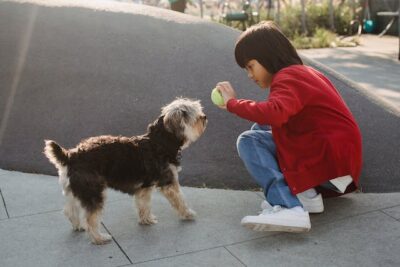
Factors Influencing Hypoallergenic Claims
Genetics of Yorkies
Hypoallergenic claims associated with breeds like Yorkies are influenced by their genetic makeup. The unique genetics of Yorkshire Terriers result in a hair-like coat, reducing the shedding of dead hair and dander. This genetic factor makes Yorkies a potentially hypoallergenic choice for individuals with sensitivities, highlighting the significance of genetics in understanding hypoallergenic claims.
Environmental Considerations
Environmental considerations play a crucial role in influencing hypoallergenic claims for certain dog breeds. Factors such as grooming practices, living conditions, and cleanliness of the surroundings contribute significantly to the overall allergen levels in the environment.
While some breeds, like those with hair instead of fur, may naturally produce fewer allergens, maintaining a hypoallergenic environment involves responsible pet care practices. Regular grooming, clean living spaces, and attention to overall hygiene contribute to minimizing allergens, enhancing the effectiveness of hypoallergenic claims for specific dog breeds.
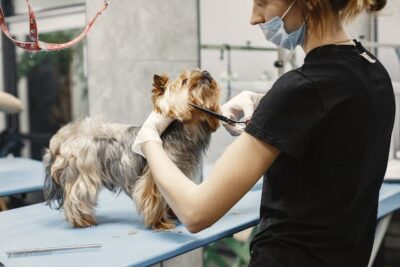
Grooming Practices for Hypoallergenic Effects
Proper Yorkie Grooming Techniques
Proper grooming techniques, including regular brushing, are key to achieving hypoallergenic effects for breeds like Yorkies. The distinctive hair-like coat of Yorkshire Terriers requires consistent care to minimize shedding, resulting in less hair being released into the environment.
Regular brushing not only keeps the Yorkie’s coat healthy and tangle-free but also reduces the potential for allergic reactions by removing loose hairs and dander. Adhering to appropriate grooming practices is essential for maximizing the hypoallergenic benefits of breeds with minimal shedding tendencies.
Recommended Shampoos and Allergen Reduction Strategies
To enhance hypoallergenic effects, use recommended hypoallergenic or fragrance-free shampoos during grooming to minimize skin irritation and allergic reactions. Incorporate allergen reduction strategies, such as maintaining cleanliness and using air purifiers, to further reduce airborne allergens.
Choose shampoos designed to preserve the dog’s natural oils for a healthier coat, promoting hypoallergenic practices. This holistic approach ensures a more comfortable living space for both pets and individuals with sensitivities.
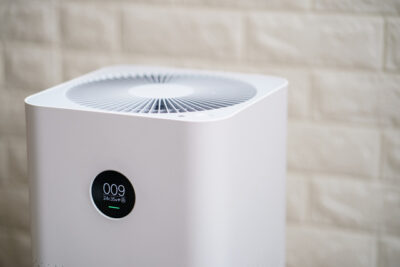
Lifestyle Adjustments for Allergy Sufferers
Creating an Allergy-Friendly Environment
Creating an allergy-friendly environment is crucial for individuals with allergy symptoms, particularly those with severe allergies. Utilizing hypoallergenic bedding, regular cleaning to minimize dog’s coat dander, and employing an air purifier with a HEPA filter are effective lifestyle adjustments that significantly reduce airborne allergens.
This proactive approach alleviates common symptoms like runny nose and itchy eyes, ensuring a healthy and comfortable living space for both individuals and their furry companions.
Incorporating Yorkies into Allergic Households
Introducing Yorkies to households with family members allergic to dogs requires caution. Despite their hypoallergenic reputation, it’s essential to watch for signs of allergy symptoms such as sneezing or itching in sensitive individuals. Regular grooming, designated pet-free zones, and open communication are key to fostering a harmonious coexistence.
For those prone to allergies, monitoring and considering options like allergy shots can contribute to building tolerance over time. These measures ensure the well-being of allergic individuals while embracing Yorkies as cherished family members.
![]()
Addressing Common Myths
Dispelling Stereotypes about Yorkies
Dispelling stereotypes about Yorkies is crucial. Beyond their small size and luxurious coats, individual personalities vary, and not all Yorkies are overly yappy or high-maintenance. Debunking these myths allows potential dog owners to better appreciate the breed’s intelligence, loyalty, and adaptability for more informed decisions.
Debunking General Hypoallergenic Misconceptions
Debunking general hypoallergenic misconceptions is vital for a clearer understanding of dog breeds. Contrary to popular belief, no breed is entirely allergen-free. While some dogs, like those with hair instead of fur, may produce fewer allergens, individual sensitivities vary.
It’s important to recognize that hypoallergenic doesn’t mean allergy-proof, and potential dog owners should consider various factors, including grooming practices and living conditions, to make informed choices about breeds that may be more suitable for individuals with allergies.
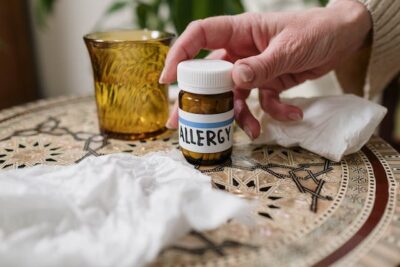
Choosing the Right Yorkie for Your Needs
Considering Individual Health Conditions
When choosing the right Yorkie for your needs, it’s crucial to consider individual health conditions, especially if the dog is intended to be a family member. Consulting with a healthcare professional can provide valuable insights into potential compatibility, ensuring that the chosen Yorkie aligns with the health requirements and well-being of the entire family.
This personalized approach helps create a harmonious and supportive environment for both the family and their new canine companion.
Consultation with Allergists and Veterinarians
Selecting the right Yorkie for your needs involves crucial consultations with allergists and veterinarians. Allergists can assess the potential for allergic reactions and guide you toward breeds that are truly hypoallergenic, considering individual sensitivities. Veterinarians offer insights into specific care requirements for Yorkies, helping to minimize the risk of developing allergies. These consultations ensure an informed decision that prioritizes both the well-being of your family and the chosen Yorkie.

Yorkie Care Tips for Allergy-Prone Owners
Dietary Considerations
For allergy-prone owners of Yorkies, paying attention to dietary considerations is crucial. Opting for high-quality dog food can contribute to overall health and potentially reduce the likelihood of developing allergies.
Additionally, the unique coat composition of Yorkies, with few hairs shed compared to furry breeds, can further minimize airborne allergens. By prioritizing a nutritious diet and considering the specific characteristics of their coat, allergy-prone owners can create a healthier environment for their Yorkie, promoting well-being for both owner and furry friend.
Exercise and Lifestyle Recommendations
For allergy-prone owners of Yorkies, incorporating regular exercise and lifestyle recommendations is essential. Engaging in dog training not only enhances the bond between owner and Yorkie but also provides structured physical activity that is beneficial for their health. Establishing a consistent routine and incorporating mental stimulation through training sessions contributes to a happy and well-adjusted Yorkie, creating a positive environment for both the owner and their furry companion.
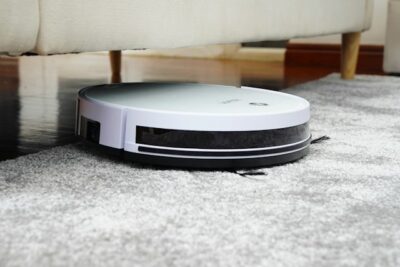
Potential Allergy Triggers Beyond Yorkies
Indoor Allergens to Be Aware Of
Beyond Yorkies, it’s crucial to be aware of potential indoor allergens that can contribute to allergies or hair loss. Using an air purifier can help mitigate airborne particles and allergens, creating a cleaner environment for both you and your pets.
Identifying and addressing common indoor triggers, such as dust mites and pet dander, is essential for individuals prone to developing allergies or experiencing issues like hair loss. Taking proactive measures to minimize these allergens ensures a healthier living space for everyone in the household.
External Factors Contributing to Allergic Reactions
External factors beyond Yorkies can contribute to allergic reactions. Pollen, dust, and environmental pollutants are potential triggers that can impact individuals prone to allergies.
Understanding these external factors and taking measures, such as keeping living spaces clean and well-ventilated, can help minimize the risk of allergic reactions. Being aware of these external contributors ensures a comprehensive approach to creating an allergy-friendly environment for both individuals and their furry companions.

Common Health Issues in Yorkies
Separate Consideration for Health-Related Concerns
When addressing common health issues in Yorkies, it’s essential to give separate consideration to specific health-related concerns. Given their small size, Yorkies may be prone to dental problems, patellar luxation, and issues related to their delicate digestive systems.
Regular veterinary check-ups, a balanced diet, and proactive dental care are crucial elements in ensuring the overall well-being of Yorkies. By tailoring care to address breed-specific health concerns, owners can promote a healthier and happier life for their Yorkie companions.
Addressing Health Challenges in Allergic Households
For families with allergies, regular veterinary check-ups, a balanced diet, and proactive dental care become even more critical. By tailoring care to address breed-specific health concerns, households with allergies can ensure the overall well-being of their Yorkies, fostering a healthy and harmonious living environment.

Conclusion: Are Yorkies Hypoallergenic
Recap of Key Points
Delving into the question ‘Are Yorkies hypoallergenic?’ opens a realm of understanding regarding these beloved companions and their potential impact on allergy sufferers. While Yorkies possess certain hypoallergenic qualities, a comprehensive examination of factors such as coat type, grooming routines, and individual sensitivities is crucial.
By navigating through these considerations, prospective owners can make informed choices to ensure a harmonious coexistence with their furry friends. If you’re considering adding a Yorkie to your family, explore our selection of Yorkie puppies for sale in Georgia and surrounding areas.
Navigating the Complexity of Yorkies and Allergies
Bringing a Yorkie home involves considering their hypoallergenic traits, yet recognizing no dog is entirely allergy-proof. Are Yorkies hypoallergenic? Understanding factors like coat composition and adopting proactive measures ensures a conducive environment for a joyful coexistence with your Yorkshire Terrier, especially for allergy sufferers.
While Yorkies are often considered hypoallergenic dogs, it’s essential to be aware of the potential for allergic reactions and understand that no dog breed can guarantee complete immunity. Taking steps to manage allergens and being mindful of the specific needs of allergy sufferers can contribute to a harmonious living arrangement with your beloved Yorkshire Terrier.
Frequently Asked Questions: Are Yorkies Hypoallergenic
- Q1: Are Yorkies hypoallergenic dogs?
- A1: While Yorkies are often considered hypoallergenic due to their low shedding and silky coat, no dog breed is entirely allergen-free.
- Q2: What are common signs that a Yorkie is hypoallergenic?
- A2: Common signs include low shedding, reduced canine dander, and a fine, silky coat that minimizes allergic reactions in individuals prone to allergies.
- Q3: Can a Yorkie’s hair reduce allergic response?
- A3: Yes, the unique hair-like coat of a Yorkie tends to shed less, potentially minimizing allergic responses in those with sensitivities.
- Q4: How can grooming practices help reduce shedding in Yorkies?
- A4: Regular grooming, including brushing, is essential in reducing shedding and maintaining a healthy coat, contributing to a more hypoallergenic environment.
- Q5: Can Yorkies be suitable for allergy sufferers?
- A5: Yorkies may be suitable for some allergy sufferers due to their low shedding and minimized canine dander, but individual sensitivities vary.
- Q6: Is a Yorkie puppy less likely to trigger allergies?
- A6: Yorkie puppies, with their fine and silky hair, may be a consideration for allergy sufferers as they shed less compared to some long-haired breeds.
- Q7: What steps can be taken to stay healthy around a Yorkie?
- A7: Minimize allergic reactions by adopting grooming practices, maintaining cleanliness, and creating designated pet-free zones within the living space.
- Q8: Are Yorkies truly hypoallergenic?
- A8: Yorkies are considered hypoallergenic to some extent, but complete hypoallergenicity is a misconception. Individual responses vary.
- Q9: Do Yorkies have a silky coat?
- A9: Yes, Yorkies are known for their silky coat, which is one of the reasons they are considered hypoallergenic compared to some long-haired breeds.
- Q10: Can Yorkies be a good choice for individuals with dog allergies?
- A10: Yorkies may be a suitable choice for some individuals with dog allergies, given their low shedding and hypoallergenic qualities, but careful consideration is advised.



